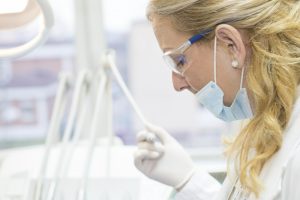
We are very excited that we’ve got the majority of our practices across the UK open for business. Right now, we are fully prioritising any emergency procedures or appointments for our patients. We went ahead and created some sort of guidance to help you tell whether or not you’re suffering from an emergency and what steps you should take to proceed. Unfortunately, routine visits have had to change due to the negative impact of the virus. With social distancing in place, it has made it increasingly difficult to provide these services. Here is some of the pertinent information you can use to help you learn how to access an NHS dentist during these difficult times.
How can I find a dentist?
To find the dental practice that can give you the help you need, you should:
- Call a local dentist in your area to give you information about all of their opening hours and to ask for specific advice on what you should do to get the care you require.
- If you don’t currently have a dentist or if your dentist isn’t accepting visits, you can always call NHS 111. You’ll find translation services readily available.
- If you suffer from hearing difficulties, you can visit interpreternow.co.uk/nhs111 for help.
Keep in mind, you shouldn’t be visiting a dentist without making and verifying an appointment.
Any dental practices will have to prioritise their patients that are based on their individual needs. The British Dental Association advises patients:
- Answer the questions that you are given during the screening process. When you call, you will be asked specific questions while setting your appointment and again at your appointment.
- Prepare to use hand sanitiser when you arrive and before you leave.
- There will be social distancing measures that will be in place for the waiting rooms.
- Appointments will continue to be managed to give each patient the requisite social distancing needed. This means you’ll likely have fewer options to choose from when you are choosing a dental appointment.
What is considered a dental emergency during a pandemic?
You should contact a local dental practice quickly if you have:
- Swelling in your gums, cheeks, or your face. If swelling begins to spread, you need to contact immediately and mention it over the phone.
- You have too much pain in your mouth that is resulting in your inability to sleep or concentrate throughout the day.
- You suffer from any mouth ulcers that aren’t healing.
- You’ve had a recent tooth extraction and it’s continuing to bleed and it isn’t stopping.
- You suffer from a broken or cracked tooth that is causing you considerable pain and it’s only getting worse.
- You’ve knocked out one of your teeth.
- You’re experiencing controlled bleeding caused by facial trauma.
Non-emergency:
If you are experiencing any of the symptoms mentioned below, you should be able to treat the problem at home or speak to your dental practice if you’re experiencing:
- A toothache that is minor and it’s coming and going or it’s causing a dull pain.
- A small amount of pain in your wisdom teeth with no apparent swelling and isn’t restricting your ability to open your mouth.
- Sensitivities in your teeth.
- Sharp pain while biting.
- Orthodontic pain.
- Loose veneers or crowns.
- Any discomfort stemming from dentures.
Accident and Emergency:
You will want to go directly to A&E if you experience:
- Any swelling in your face that is negatively impacting your ability to see, breathe, or swallow.
- Trama that is causing you to go unconscious or have double vision.
- Uncontrollable bleeding stemming from your mouth.